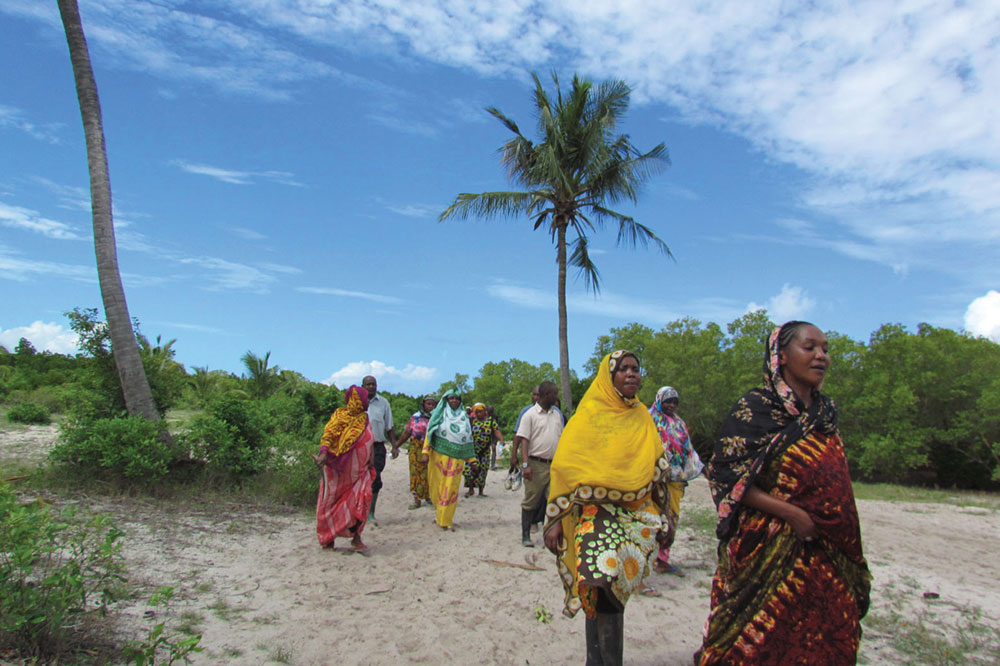
BY CLAY PEARSON
The reality of a connected world is no longer a projection, not something to anticipate and prepare for in the future. It’s here now. Flights from Houston to Bangkok can be cheaper than the same origination to Los Angeles. Internet speeds make conducting business around the world both easier and urgent. Employees, customers, and suppliers can connect from anywhere at any time. Yet, we still need to connect in traditional human, personal ways, too. We need understanding and context, familiarity and trust. In terms of sheer numbers, most people in the world live in cities, from suburban incorporated areas to the giant megalopolises in Asia and Africa. Here in America, the cities that are growing and thriving are doing so in large part thanks to immigrant and expatriate populations.
Considering all of this current reality, it makes sense that smart U.S. local governments want a diverse staff with relevant experience and cultural competency that extends beyond our national borders. By keeping an eye out for talent that adds some international perspective, U.S. local governments can hire people who are flexible and adaptable, more open-minded and less dogmatic, and tuned into global networks. Study abroad programs are thriving in our universities and colleges—emerging leaders are ready now for diverse international connections. Let’s leverage that and maximize talent for our local governments.
I strongly believe that modern business skills and outlooks are well developed through international experiences. Traveling to a different country exposes you to cultural experiences that can both test what you think you know and make you appreciate what you have from a fresh perspective.
By instinct and training, U.S. local government officials traveling abroad are bound to see and learn from things that other travelers might not appreciate in the same ways. For example, there is excitement in the Texas Triangle for a high-speed bullet train on the flat plains between Houston and Dallas.1 The Japanese Shinkansen—a network of high-speed railway lines connecting distant regions with Tokyo—has run on time and safely (10 billion passengers, zero fatalities) for 50 years. When we rode the sleek bullet trains years ago as part of the Japan Local Government Center Fellowship (through the Council of Local Authorities for International Relations), it was a novel wonder. Similarly, a high-speed rail system across China now provides a vital mobility link. Those of us who have seen these real-life examples internationally can not only add our voice to the chorus of “oohs and aahs,” we can vouch for their benefit as a transportation alternative in the Lone Star State back home.
The Pressing Issues Faced by Communities Across the Globe
Sustainability became a public policy concern in Western Europe and Oceania decades ago. Perhaps it’s not surprising that it was a UK city manager then working in Australia, Michael Willis, who first addressed the issue of sustainability at an ICMA conference, calling on local governments leaders to look at sustainability as a “defining question of our age.” Our colleagues abroad were among the first to be aware of the techniques that we are slowly—but with increasing urgency —bring to U.S. businesses and workplaces.
Two topics in particular could benefit from a broad discussion and transfer of knowledge and experiences between our local officials here in the United States and our international colleagues: water and transportation. Extensive training in the innovations found internationally could strengthen the careers of those local government leaders who bring home the lessons from abroad.
Water
Water in all forms is an immediate major concern for localities across the globe. Rising sea levels and surges affect coastal communities around the world. U.S. managers who know something about what they do in the Netherlands to keep water away from property should be sought after. The Netherlands have had experience with sea and river flooding there with dikes, pumps, and land reclamation for centuries. In Bangkok, the flat tropical landscape offers parallel examples for all cities in the Gulf of Mexico and the Florida peninsula for dealing with storm water. I got to see pumps and management systems first-hand through the State Department and ICMA’s Southeast Asia Fellowship Program. In much of India, improving drinking water quality, supply management, and sanitation are national imperatives. We talk about innovation extensively in local government profession, but maybe local innovation starts with learning abroad so we can adapt lessons to local context.
Transportation
It’s a modern world and people are constantly moving through it in different, more efficient ways. The bullet trains were mentioned earlier, but there are slower, less flashy lessons to be had. Start with walking. Pedestrian orientations from dense cities have long been admired by Americans venturing into the old city squares of Europe. Now we study their complex bicycle and pedestrian combinations in search of ways to introduce those healthier and more sustainable alternatives here in our own communities.
Add in the integrated transit combinations of rapid bus and rail systems, and there are lots of options to learn from and adapt for home. And then add to that the “smart city” ideas that communities in India and the United Kingdom are incorporating into their transportation infrastructure to increase safety and efficiency. Dublin, Ohio, and Ahmedabad, India are two communities that couldn’t be farther apart and yet, thanks to the sharing of ideas and experiences, are traveling two parallel paths to create similar smart corridors to collect data and even serve as test beds for connected vehicle technology.
Deeper Decision-making
By working to develop international perspectives, local government officials gain a depth of knowledge and perspective that can lead to better decisions. Greater knowledge and perspective are gained by seeing things firsthand—seeing how top-down, national-to-local concepts versus, say, cooperation between levels of government, affect service delivery and quality of life. Those who avail themselves of international experiences, who make that investment in their own career and immerse themselves in such a learning environment, are going to be stand-outs in the pile of applications for U.S. local government jobs.
Be Hospitable
International exposure builds cultural competence. We all have in our communities many people of diverse backgrounds, ethnicities, and experiences who contribute to the richness and depth of our cities. I’m struck by the number of times that someone mentions in conversation that they came from another country or have a first-generation relative that made the journey to start a new life in America. They appreciate when you can share that you, too, know a little bit about the world outside your own locality. We need to see things abroad to add to our own way of thinking.
International Opportunities through ICMA
There are of course numerous ways to expand your horizons internationally, but ICMA has many opportunities specifically for the local government professional. ICMA has an outstanding program through the U.S. State Department, the Young Southeast Asian Leaders Initiative (YSEALI). This is a program that enables young leaders (YSEALI Fellows) from Brunei, Burma, Cambodia, Indonesia, Laos, Malaysia, Singapore, the Philippines, Thailand, Timor-Leste, and Vietnam to work directly with American counterparts to enhance their practical expertise, leadership skills, and professional contacts to address challenges and create new opportunities in their home communities. Several rounds are conducted each year and Fellows are hosted at local governments. It’s an awesome experience to learn, develop those hosting and sharing skills, and develop some cultural competency. Selected American counterparts have the opportunity to travel overseas for a two-week reciprocal exchange where they work with their foreign counterparts on projects of mutual importance. ICMA also offers members other opportunities to engage in its international programs ranging from providing technical assistance, for example, in Tanzania to promote inclusive economic growth to participating in CityLinks™ exchange programs.
The ICMA International Committee is a formal standing part of the ICMA structure for members. Its activities are all open to any members. The ICMA International Committee will be meeting in India in February 2020, hosted by its long-standing partner, The Urban Management Centre.
Look in your own backyard, too. There are many other avenues that you can make your own. Your local colleges and universities undoubtedly have a study program or exchange established. There are also likely various cultural affinity groups in your area—a chamber of commerce or consulate tied to a country or region abroad. Sister city or state relationships may be in place that you can take advantage of or bring to life again. It’s crucial that local government leaders find ways to grow their international awareness to strengthen their own communities back home.

CLAY PEARSON is city manager, Pearland, Texas (CPearson@pearlandtx.gov).
New, Reduced Membership Dues
A new, reduced dues rate is available for CAOs/ACAOs, along with additional discounts for those in smaller communities, has been implemented. Learn more and be sure to join or renew today!
